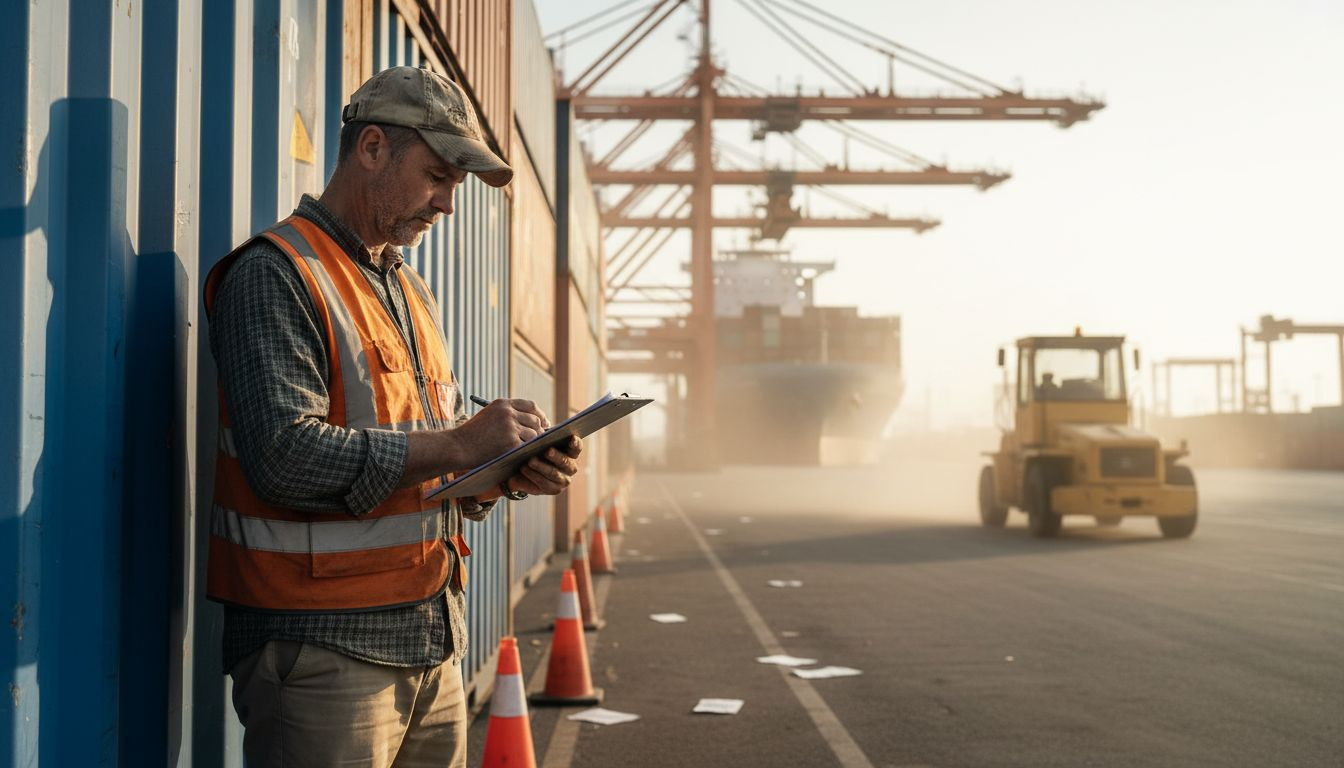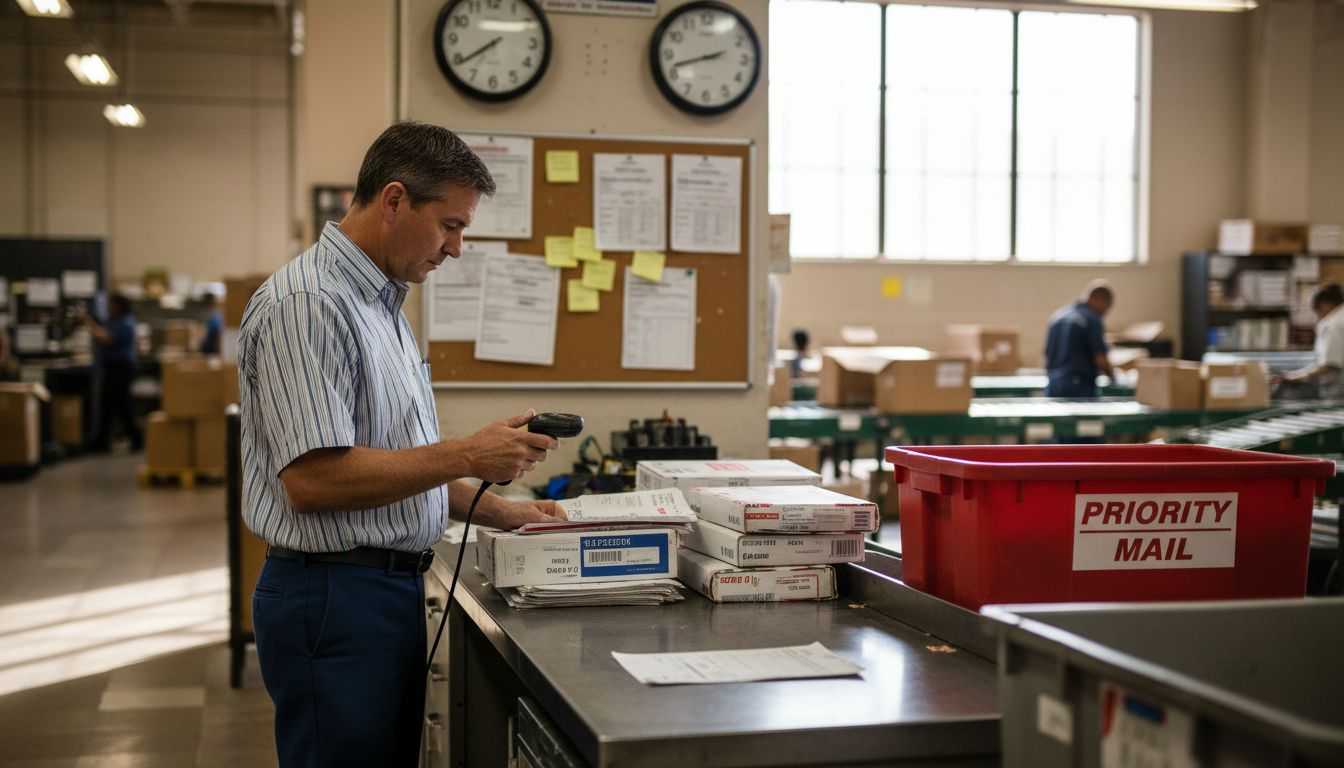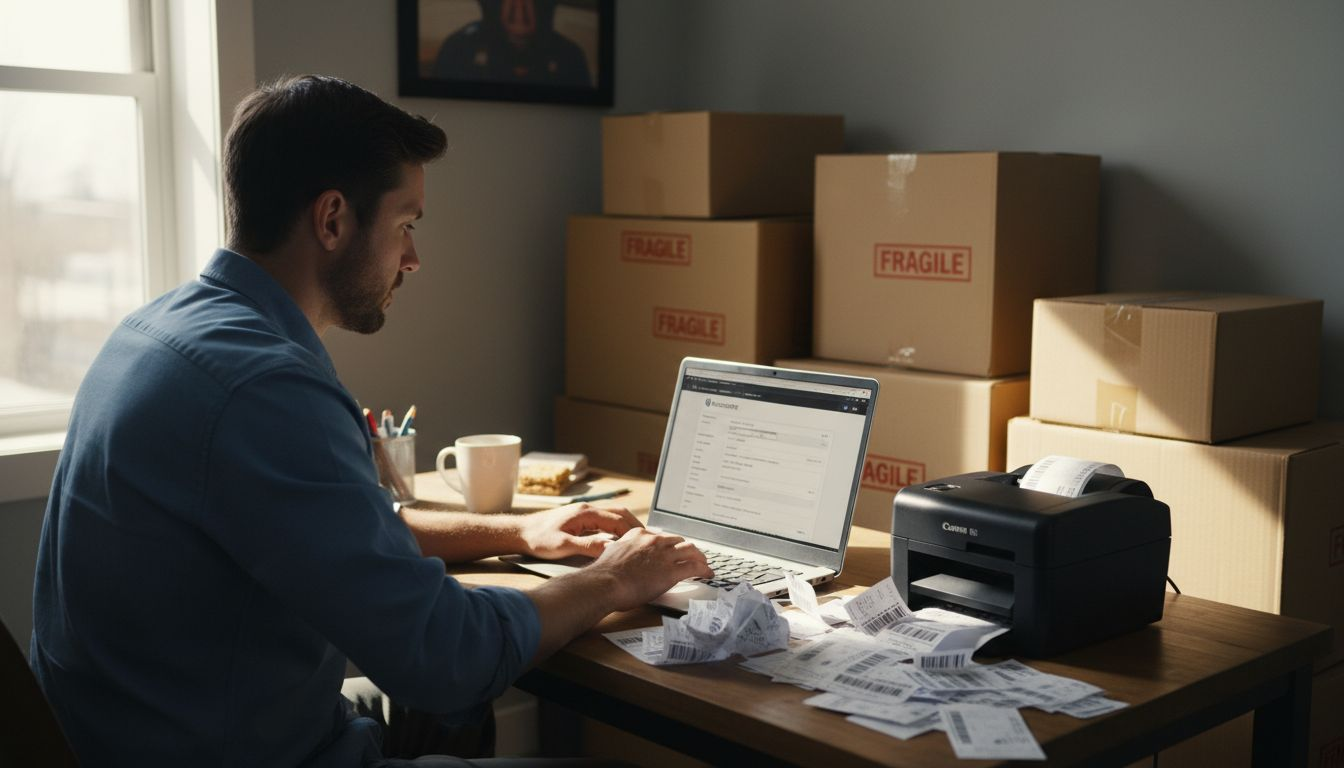Did you know that improper customs paperwork can lead to delays costing businesses billions each year? With international trade regulations growing more complex, even experienced importers can struggle to keep up. A single mistake might halt your shipments or leave you at risk of fines. Learning how a customs broker can guide you through these challenges unlocks greater confidence in every cross-border transaction.
Table of Contents
- What Is A Customs Broker And Why Do You Need One?
- How Do Customs Brokers Assist With Import And Export Compliance?
- What Documents Are Required By Customs Brokers?
- How Can A Customs Broker Speed Up Customs Clearance?
- What Should You Look For When Choosing A Customs Broker?
- What Are The Common Costs Involved With Customs Brokerage?
- How Do Customs Brokers Help Manage Trade Risks And Penalties?
Quick Summary
| Takeaway | Explanation |
|---|---|
| 1. Customs brokers streamline import processes. | They prepare documentation and ensure compliance, reducing delays and penalties for importers. |
| 2. Accurate documentation is crucial for success. | Essential documents include invoices and customs bonds; errors can lead to significant delays. |
| 3. Choose a customs broker carefully. | Look for responsiveness, industry knowledge, and fee transparency to avoid complications. |
| 4. Brokers help manage compliance risks. | They ensure proper classification and documentation to prevent costly penalties and errors. |
| 5. Understand customs brokerage costs. | Various fees impact your budget; staying informed helps avoid unexpected expenses. |
1. What Is a Customs Broker and Why Do You Need One?
A customs broker is your strategic partner in navigating the complex world of international trade, serving as a critical bridge between importers and government customs agencies. These licensed professionals specialize in simplifying the intricate process of moving goods across international borders.
At its core, a customs broker handles the complex paperwork, regulatory compliance, and technical documentation required for importing goods into a country. According to recent market research, importers increasingly rely on these experts to manage rapidly changing tariff regimes, with the U.S. customs brokerage market now valued at around $5 billion.
Key Responsibilities of a Customs Broker:
- Preparing and submitting precise customs documentation
- Calculating and managing import duties and taxes
- Classifying products using the correct Harmonized Tariff Schedule (HTS) codes
- Ensuring compliance with current import regulations
- Facilitating smooth clearance of shipments through customs
Why do you need a customs broker? Think of them as your personal guide through a maze of regulations. Without professional assistance, importers risk significant financial penalties, shipment delays, and potential legal complications. Brokers not only help you avoid these pitfalls but also optimize your import expenses by identifying potential duty savings and navigating retroactive tariff adjustments.
Understanding the Role of a Customs Import Broker provides deeper insights into how these professionals can transform your international trade operations. By leveraging their expertise, you can focus on growing your business while they manage the intricate details of cross-border shipping.
2. How Do Customs Brokers Assist with Import and Export Compliance?
Customs brokers are your strategic partners in navigating the complex regulatory landscape of international trade, ensuring that your imports and exports remain fully compliant with government regulations. Their expertise transforms complex legal requirements into actionable strategies that protect your business from potential penalties and disruptions.
Under the Customs Modernization Act, importers and brokers must exercise “reasonable care” in maintaining accurate records and documentation. This means having meticulous attention to detail across multiple compliance dimensions.
Key Compliance Areas Where Brokers Provide Critical Support:
- Accurate classification of goods using HTS codes
- Precise calculation of import duties and taxes
- Verification of required documentation
- Ensuring adherence to trade regulations
- Managing import security filings
Brokers leverage sophisticated entry visibility solutions that help detect potential filing errors early. These tools allow quick correction of incorrect tariff numbers, product descriptions, or origin details before they become costly compliance issues. By proactively identifying and resolving potential problems, brokers help you avoid significant financial penalties and shipment delays.
Navigating international trade regulations requires specialized knowledge that goes beyond basic paperwork. Understanding International Trade Compliance Basics can provide deeper insights into the intricate world of global trade regulations. With a skilled customs broker, you transform complex regulatory challenges into smooth, efficient import and export processes.
3. What Documents Are Required by Customs Brokers?
Customs brokers require a comprehensive set of documentation to facilitate smooth import and export processes. Think of these documents as your passport through international trade regulations a critical collection of paperwork that validates your shipment’s legitimacy and ensures regulatory compliance.
According to trade regulations, importers must prepare multiple critical documents that customs brokers will review and process. The documentation serves as an official record of your transaction and provides essential details about your goods.
Essential Documents for Customs Clearance:
- Commercial invoices detailing product specifications and value
- Bills of lading or air waybills
- Proof of cargo insurance
- Detailed packing lists
- Certificates of origin
- Customs Power of Attorney
- U.S. Customs Bond
- Electronic Manifest (e-Manifest)
- NAFTA related documents (when applicable)
Preparing these documents with precision is crucial. Even minor errors can lead to significant delays or potential financial penalties. A skilled customs broker will help you navigate these requirements, ensuring each document meets strict government standards.
Your goal is to create a clear, comprehensive paper trail that demonstrates your shipment’s compliance with all relevant trade regulations. Master Export Shipping Documentation can provide additional insights into creating accurate and effective shipping documentation. By working closely with a customs broker and maintaining meticulous records, you can streamline your import and export processes and minimize potential regulatory complications.
4. How Can a Customs Broker Speed Up Customs Clearance?
Customs brokers are your strategic accelerators in the complex world of international shipping, transforming potentially weeks-long clearance processes into streamlined, efficient experiences. Their expertise and established relationships with regulatory agencies can significantly reduce processing times and minimize potential bureaucratic roadblocks.
Through participation in specialized expedited clearance programs, customs brokers leverage advanced strategies to accelerate shipment processing. These professionals understand the intricate details of cargo documentation and regulatory requirements that often cause unnecessary delays.
Key Strategies for Faster Customs Clearance:
- Precise documentation preparation
- Leveraging pre-established government relationships
- Using advanced electronic filing systems
- Participating in joint inspection programs
- Anticipating potential regulatory challenges
International trade initiatives like Unified Cargo Processing demonstrate how collaborative approaches can dramatically reduce border wait times. Brokers who participate in these programs can conduct joint cargo inspections that streamline the entire clearance process, helping your shipments move faster across international boundaries.
Efficient US Customs Brokerage Services can provide additional insights into how professional brokers transform complex regulatory landscapes into smooth shipping experiences. By investing in a skilled customs broker, you are essentially purchasing speed, expertise, and peace of mind for your international trade operations.
5. What Should You Look for When Choosing a Customs Broker?
Selecting the right customs broker is like choosing a critical business partner who will navigate the complex waters of international trade on your behalf. Your choice can mean the difference between smooth shipments and costly regulatory complications.
According to industry research, the most successful importers prioritize several key factors when evaluating potential customs brokerage partners. The goal is finding a professional who offers not just compliance, but strategic support for your international trade operations.
Critical Selection Criteria for Customs Brokers:
- Quick response times (preferably within 24 hours)
- Comprehensive geographic and port coverage
- Transparent and detailed pricing structures
- Strong professional reputation and client references
- Advanced technological capabilities
- Proactive communication and shipment updates
- Deep understanding of your specific industry regulations
Beyond basic credentials, you want a broker who acts as a true strategic partner. They should provide clear explanations about entry fees, duty handling, and potential hidden costs that could impact your bottom line. A great customs broker does more than process paperwork they anticipate challenges and provide actionable insights.
Understanding Customs Broker Near Me can help you dive deeper into local brokerage considerations. Remember that the right broker is an investment in your company’s international trade efficiency and regulatory compliance.
6. What Are the Common Costs Involved with Customs Brokerage?
Understanding the financial landscape of customs brokerage is crucial for importers looking to budget effectively and avoid unexpected expenses. While costs can vary, several standard fees are fundamental to the customs clearance process.
Customs brokerage fees are not one size fits all. Depending on your shipment complexity, volume, and specific regulatory requirements, you can expect a range of potential expenses that go beyond simple processing charges.
Key Cost Components for Customs Brokerage:
- Initial application and licensing fees
- Annual permit user fees
- Per entry processing charges
- Merchandise Processing Fee
- Fingerprinting and documentation verification costs
- Triennial status report fees
- Potential additional compliance review expenses
Government agencies periodically adjust these fees. For instance, the U.S. Customs and Border Protection plans to raise various user fees due to inflation. As of October 1, 2025, the broker permit fee is expected to increase to $185.38 for the fiscal year, highlighting the importance of staying current with regulatory changes.
How to Pay Customs Duties can provide additional insights into managing these financial considerations. Proactively understanding these costs helps importers develop more accurate budgeting strategies and prevent unexpected financial surprises in their international trade operations.
7. How Do Customs Brokers Help Manage Trade Risks and Penalties?
Customs brokers are your strategic defense against potentially costly trade compliance risks, acting as expert navigators through the complex regulatory landscape of international shipping. Their primary mission is to protect your business from unexpected penalties and regulatory complications.
Under modern trade regulations like the Mod Act and Importer Security Filing requirements, businesses face increasing scrutiny and potential financial risks. Entry visibility and proactive compliance management become critical in detecting and preventing potential filing errors before they escalate into expensive penalties.
Key Risk Management Strategies Used by Customs Brokers:
- Comprehensive document verification
- Early error detection in shipping documentation
- Accurate product classification and valuation
- Ensuring compliance with current import regulations
- Monitoring changes in trade policies and tariffs
- Providing strategic guidance on potential risk areas
- Implementing robust record keeping practices
Customs brokers use sophisticated entry visibility solutions that help identify potential compliance issues quickly. By catching classification mistakes or documentation errors early, they enable importers to make prompt corrections and avoid significant financial penalties.
Understanding Importer of Record Responsibilities can provide additional context on managing your trade compliance obligations. Ultimately, a skilled customs broker transforms regulatory complexity from a potential threat into a manageable, strategic business process.
Below is a comprehensive table summarizing the key aspects and roles of customs brokers in international trade as discussed in the article.
| Topic | Description | Key Considerations |
|---|---|---|
| Role of a Customs Broker | Acts as a liaison between importers and customs agencies, simplifying international trade compliance. | Avoids financial penalties and delays; maximizes duty savings. |
| Compliance Assistance | Ensures imports and exports comply with regulations, using reasonable care under the Customs Modernization Act. | Prevents penalties through early error detection and regulatory compliance. |
| Required Documents | Reviews and processes vital documents like invoices, bills of lading, and certificates of origin. | Errors can lead to delays; precision in documentation is crucial. |
| Speeding Up Clearance | Uses expedited programs and electronic systems to reduce customs processing times. | Leverages government relationships for faster shipment clearance. |
| Choosing a Broker | Evaluate brokers based on response time, technology, and industry knowledge. | Strategic partnership offering insights into fees and compliance. |
| Brokerage Costs | Involves licensing fees, processing charges, and potential compliance reviews. | Fees vary based on shipment complexity; important to understand potential additional costs. |
| Risk Management | Provides guidance to avoid trade compliance risks and potential penalties. | Uses entry visibility solutions to quickly identify and correct compliance issues before they become costly. |
Simplify Your Customs Brokerage Challenges with Expert Support
Navigating customs brokerage can feel overwhelming with complex regulations, strict documentation requirements, and the risk of costly penalties. This article highlights key challenges such as ensuring compliance, managing detailed paperwork, and speeding up customs clearance. Importers like you need a trusted partner who understands these pain points and can turn regulatory complexity into a smooth, efficient process. By working with experienced customs brokers, you gain precise product classification, proactive risk management, and faster shipment clearance.
Ready to make customs brokerage easier? Discover how Worldwide Express, Inc. delivers tailored customs brokerage solutions designed to address the specific concerns covered in the article. From expert compliance support to comprehensive documentation management, our services help you avoid delays and unexpected fees.

Take control of your imports now by exploring our customized logistics options on the Uncategorized – Worldwide Express, Inc. page. Learn more about how we safeguard your shipments and streamline your cross-border operations. Visit our main site to request a quote or connect with a customs specialist today.
Frequently Asked Questions
What services do customs brokers provide for importers?
Customs brokers assist importers by handling necessary customs documentation, classification of goods, calculation of duties and taxes, and ensuring compliance with import regulations. To optimize your import process, collaborate closely with a broker to streamline your shipping and minimize delays.
How can a customs broker help reduce my import costs?
Customs brokers can identify potential duty savings and optimize tariff classifications, helping you avoid unnecessary expenses. Work with your broker to regularly review and adjust your import strategies to achieve optimal cost efficiency.
What documents should I prepare for customs clearance?
Essential documents include commercial invoices, bills of lading, packing lists, and certificates of origin. Ensure these documents are prepared accurately and submitted timely to facilitate a smooth clearance process.
How do customs brokers speed up the customs clearance process?
Customs brokers expedite clearance by preparing precise documentation and leveraging established relationships with regulatory agencies. To enhance speed, engage with your broker early in the shipping process to resolve potential issues before they arise.
How can I evaluate and choose the right customs broker for my business?
When choosing a customs broker, consider factors like response times, geographic coverage, technology use, and industry expertise. Assess their communication practices and seek client references to ensure they align with your business needs.
What are the typical costs associated with hiring a customs broker?
Common costs include entry processing fees, annual permit fees, and potential compliance review expenses. To effectively budget for customs brokerage services, review the fee structure with your broker and factor in additional costs that could impact your overall expenses.
Recommended
- Understanding the Role of a Customs Import Broker – Worldwide Express, Inc.
- Understanding Customs Broker Near Me: What You Need to Know – Worldwide Express, Inc.
- Understanding Customs Broker vs Freight Forwarder – Worldwide Express, Inc.
- Understanding Customs Clearance Companies and Their Role – Worldwide Express, Inc.






